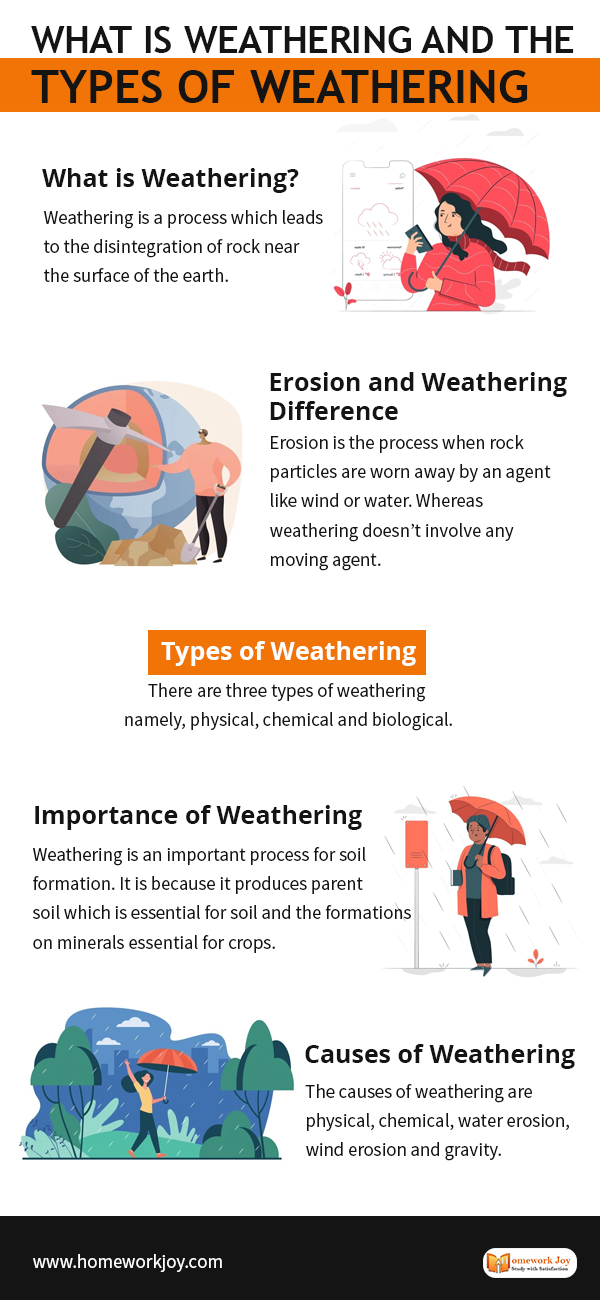Weathering is a process that leads to the disintegration of rock near the surface of the earth. Agents of weathering are water, ice, acids, salts, plants, animals, and changes in temperature.
Erosion is the process through which rocks and minerals are being carried away after the rock has been broken. The Grand Canyon in the USA, Arizona, is one such landmark developed through these processes.
The processes like weathering and erosion constantly change the landscape of the earth. It is to be noted that a single type of weather rock produces infertile soil. In contrast, different types of weathered rocks produce fertile soil rich in minerals.
Erosion and Weathering Difference
Erosion is the process when rock particles are worn away by an agent like wind or water. In comparison, weathering doesn’t involve any moving agent. Weathering is the process of decomposition of rocks, soil, and minerals by direct contact with the atmosphere.
Moreover, the types of erosion are wind, water, and soil. At the same time, the types of weathering include physical, biological, and chemical. Read further to know more about it.
Types of Weathering
There are three types of weathering, namely, physical, chemical, and biological.
Physical Weathering
Physical weathering is also known as chemical weathering. Water or liquid is a key agent of physical weathering. For instance, water can seep into the cracks of rocks, and when the temperature gets low, the water becomes ice.
The ice then widens itself and crack open the rocks. And finally, when the ice melts, the water performs the act of erosion by carrying the tiny rock segments.
Chemical Weathering
Chemical weathering occurs when the rainwater reacts with mineral grains in rocks to form new minerals like clay and soluble salts. This process takes place during warm temperatures. Moreover, the first stage in the production of soils is chemical weathering. Chemical weathering is also of three types: Solution, Hydrolysis, and Oxidation.
Biological Weathering
Biological weathering is the process of weakening and disintegration of rocks by plants, animals, and microbes. This is because plant roots can cause stress or pressure on rocks. Though the process is physical, the pressure is exerted by a biological process.
Importance of Weathering
Weathering is an important process for soil formation. It is because it produces parent soil which is essential for soil, and the formations on minerals essential for crops.
Causes of Weathering
The causes of weathering are physical, chemical, water erosion, wind erosion, and gravity.
If you need more help related to similar topics, take instant online homework help from our professors.
